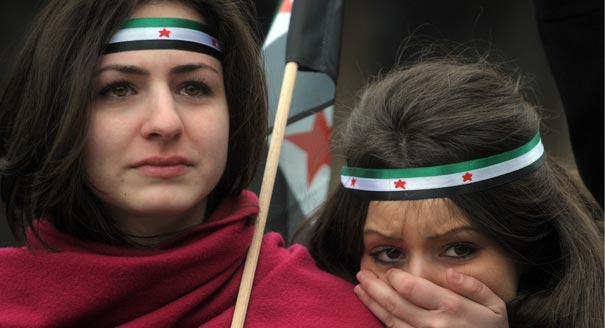Source: London School of Economics and Political Science
“The nature of what’s going on in Syria—the Syrian revolution—is so particularly complex,” said Carnegie’s Yezid Sayigh during a public lecture at the London School of Economics and Political Science. Sayigh reflected upon the notion of “revolution” as a framework to “understand the nature and the strengths and weaknesses of the protagonists – both the regime and its various foes.”
Noting parallels with other historical experiences, such as the beginning of Palestinian activism, Sayigh explained the importance of social dynamics in Syria: “the sort of discourse we get and the sort of reporting we get on which a lot of policy is built is about good and bad…tyrannical regime versus democratic opposition, moderates versus radical Islamists.” Sayigh noted that it’s not necessarily wrong, but that “this kind of reporting, it doesn’t really tell us what is going on in Syria and certainly not enough to understand where things are going, and why they’ve gone where they are, and why we keep seeming to be surprised about where things have gone.”
Sayigh emphasized the importance of a social reading on Syria, explaining that “had there not been an Arab Spring...the Syrian revolution—the uprising—probably wouldn’t have started just in that time, in that way.” Additionally, by looking at violence of the armed struggle, including “who wields violence, how it’s wielded, what for, with what discourse, that, I think, tells us more about the nature of the Syrian revolution.”
This conference was recorded and hosted by the London School of Economics and Political Science.







